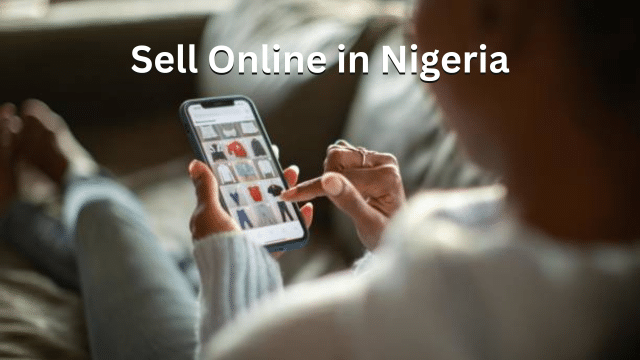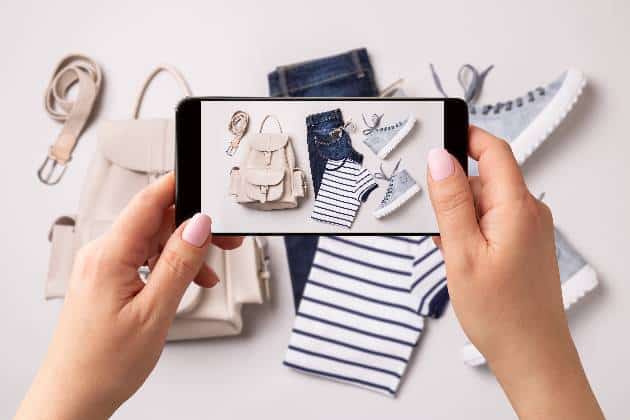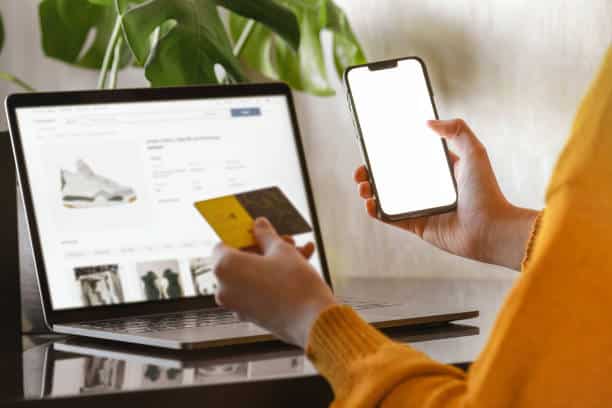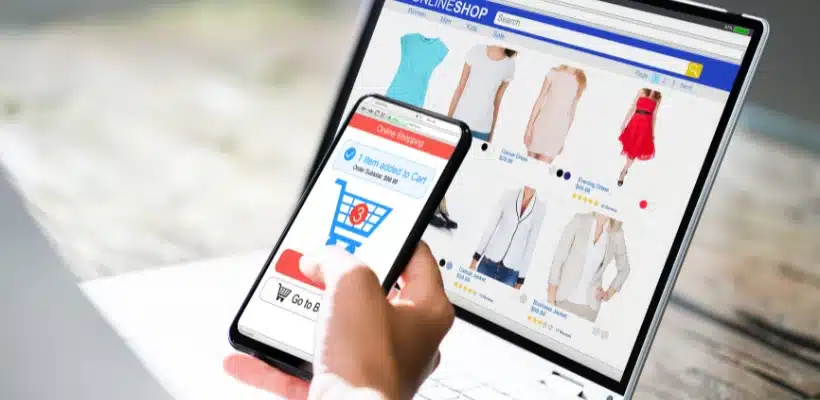In today’s fast-paced digital world, more Nigerians are discovering how easy and profitable it is to sell products and services online. Steps to sell online in Nigeria are now simpler than ever. With just your smartphone and an internet connection, you can turn a simple idea into a steady income stream, whether you’re a student, stay-at-home parent, side hustler, or full-time entrepreneur. The beauty of it all? You don’t need a shop or a huge capital to get started.
This 2025 guide is your friendly roadmap to starting a successful online business in Nigeria, even if you’ve never sold anything before. We’ll walk you through everything, from what to sell, where to sell, and how to promote your products effectively, using local tools and platforms that actually work here in Nigeria.

What You Can Sell Online in Nigeria
Before you jump in, you need to decide what exactly you’ll be selling. Thankfully, you’re not limited, there’s a market for almost anything online today.
Physical Products
These are items people can touch and feel. Examples include:
- Fashion items (clothes, shoes, bags)
- Beauty products
- Phones and accessories
- Home décor or kitchen items
- Agricultural produce (e.g., honey, dried fish)
Digital Products
These are downloadable or virtual items, and they’re booming!
- Ebooks and guides
- Online courses or webinars
- Templates and graphic designs
- Stock photos or music
- Services
You can also sell your skills:
- Freelance writing or design
- Virtual assistance
- Social media management
- Tailoring or home cleaning services (bookable online)
Related Posts:
Requirements to Start Selling Online in Nigeria (2025)
You don’t need much to kickstart your online business in Nigeria, just a few essentials to help you stay connected, receive payments, and deliver your products. Here’s a simplified checklist:
1. Smartphone or Laptop
This is your digital workspace. Use it to take product photos, chat with customers, manage social media or your online store, and track sales.
2. Stable Internet Connection
Reliable data helps you upload content, respond to inquiries, and run ads. Choose a good mobile network like MTN, Airtel, or Glo for steady access.
3. Product or Service to Sell
Decide what you’re offering, whether it’s physical goods like clothes or food, digital items like ebooks, or services like tutoring or design.
4. Payment Method
Set up a simple and secure way to receive money. Use platforms like Paystack, Flutterwave, or direct bank transfers for fast, stress-free payments.
5. Delivery Option
Figure out how to get your product to buyers. You can:
- Use local dispatch riders.
- Partner with logistics services like GIGL or Sendbox.
- Deliver by hand if customers are close by.
With these basics, you’re ready to start selling online confidently. Keep it simple, stay consistent, and grow step by step.

Step-by-Step Guide to Selling Online in Nigeria
Now, let’s go step by step and build your online business.
Step 1: Choose a Niche and Product
Pick something you’re passionate about and that solves a problem. For example, if you love fashion, you could sell Ankara-inspired clothing. Focus on a specific target audience, this helps you stand out.
Step 2: Research Your Market
Before you spend money on stock or invest time in a service, take a moment to study the market. Ask yourself:
- Who needs this product or service?
- Are others already selling it?
- What are the prices like?
Do quick checks on Facebook Marketplace, Instagram, Jumia, or even Twitter/X trends to see what’s popular, what people are buying, and what gaps you can fill. This helps you avoid guesswork and waste.
Step 3: Source or Create Your Product/Service
Now that you’ve done your market research, it’s time to decide what exactly you’re going to sell, and how you’ll get it.
You have three main options, depending on your skills, interests, and budget:
Make It Yourself
If you’re creative or skilled at making things, this is a great way to start with little capital. You can produce:
- Homemade snacks (chin chin, small chops, zobo, pastries).
- Handmade crafts (beaded jewelry, hair accessories, home décor).
- Skincare products (soaps, body butters, oils).
These products are usually high in demand, and people love buying items made with care and a personal touch.
Buy and Resell
This is one of the fastest ways to start selling online. You buy products in bulk at a cheaper price from:
- Wholesale markets like Balogun (Lagos), Ariaria (Aba), or Onitsha Main Market
- Online B2B platforms like Alibaba, 1688.com, or Supermart.
Then, you resell with a profit margin on different platforms.
Offer a Skill-Based Service
If you’re not ready to sell physical products, why not sell your skills instead?
Are you good at graphic design, video editing, copywriting, web design, or social media management?
Can you offer online tutoring, virtual assistance, or resume writing?
Service-based businesses require low startup costs and can be run entirely from your phone or laptop.
Step 4: Choose Where to Sell
With your product or service ready, the next step is picking the right place to showcase it. Where you choose to sell can affect your visibility, ease of customer communication, and even your growth rate.
Here are your best options:
Social Media Platforms
Perfect for beginners and small budgets. They allow direct communication and are ideal for building relationships with your audience.
- Instagram: Great for fashion, beauty, and lifestyle products
- WhatsApp: Best for personal selling, referrals, and groups
- Facebook: Versatile, use personal pages, business pages, and Marketplace
Start by posting consistently, using attractive visuals, and sharing testimonials.
Online Marketplaces
These platforms already have lots of buyers looking for what to buy. You get more exposure without needing to build your website:
- Jumia: Popular and trusted.
- Konga: Nigerian-owned, with
- broad reach.
- Jiji: Perfect for direct, localized selling.
Just note that some marketplaces take a small commission and may have listing guidelines.
Your Online Store
Want full control and branding? Set up your digital shop:
- Shopify: International, beginner-friendly, and powerful.
- QShop: Nigerian-based, simple to use, no coding required.
- Flutterwave Store: Great for selling to Nigerians and across Africa with easy payment setup.
With your store, you control how your brand looks, what features you add, and how customers interact with your products.
Step 5: Set Up Your Online Store or Profile
This is where customers meet your business, so make it attractive, trustworthy, and easy to use. Whether you’re selling on Instagram, WhatsApp, Facebook, or through your online store, your digital storefront should give a great first impression.

Here’s how to set it up properly:
Use Clear, High-Quality Photos
People buy what they can see clearly. Use good lighting, clean backgrounds, and multiple angles. If your pictures are dull or blurry, people may scroll past.
Write Short but Catchy Captions
Tell your product’s story in a few words. Mention the name, benefit, and call to action. For example:
“Premium Ankara Bag – Perfect for work or church. Only ₦5,500! DM to order.”
List Key Details
Always include:
- Product features (e.g., sizes, colors, material).
- Price (be upfront).
- How to order (chat, form, or link).
- Add Contact or Ordering Link.
Include a WhatsApp link (e.g. via wa.me), a DM button, or a form to place orders quickly. Make sure you reduce the steps it takes to buy from you.
Step 6: Set Up Payment and Delivery System
Nobody likes stress during checkout. Once someone wants to buy, your payment and delivery process should be smooth, fast, and reliable.
Set Up Payment Options
Offer safe, easy-to-use methods:
- Paystack: Generate payment links or embed checkout on your store.
- Flutterwave: Great for receiving both local and international payments.
- Bank Transfer: Still common, but always confirm before dispatch.
Avoid “DM for account number.” Instead, automate your payment with a clear payment link, which saves you time and looks more professional.
Plan Your Delivery Method
Getting your product into the customer’s hands is just as important as selling it.
Use trusted dispatch services like GIG Logistics, Kwik, Sendbox, or local bike delivery services in your area.
For nearby customers, you can deliver personally or meet up in safe, public locations.
Make sure to:
- Confirm delivery fees upfront.
- Keep customers updated with tracking or rider info.
- Package items securely to avoid damage.
A smooth delivery builds trust and encourages repeat business. Poor delivery can ruin a good product.
Step 7: Launch and Promote
Now that your products or services are ready and your store or profile is set up, it’s time to announce to the world that you’re open for business. Promotion is what gets you noticed, and without it, even the best product may not sell.
Here’s how to spread the word:
Start with Personal WhatsApp
- Your phone contacts are your first customers.
- Post your product on your WhatsApp Status daily.
- Send polite broadcast messages to friends and family.
- Add your business name and link to your WhatsApp bio.
People who know you are more likely to trust and support you, especially when starting.
Use Social Media Ads
If you have a small budget, run simple ads on:
Target people in your location or niche. Even ₦1,000 – ₦2,000 can get your product in front of hundreds of potential buyers.
Leverage Word of Mouth
Tell people in your circle, church members, school friends, colleagues, neighbors, to help you share.
- Offer small discounts for referrals.
- Create a short flyer or digital poster they can easily share.
Promotion is a daily job. Be consistent, be proud of your hustle, and stay visible.
Step 8: Track, Analyze, and Improve
Running an online business is not just about selling, it’s about learning what works and getting better over time. This is how you grow.
Here’s what to keep an eye on:
Top-Selling Products
Check which products are selling faster or getting more orders. That’s your star product; focus on promoting it more.

Most Engaging Posts
What kind of photos, captions, or videos get the most likes, comments, or shares?
Recreate more content in that style to keep your audience interested.
Customer Feedback
Pay attention to what buyers are saying. Are they praising your packaging? Complaining about delivery delays? Use this feedback to adjust and improve.
Repeat Customers
Track if customers are coming back. If not, follow up politely and ask for reviews or referrals. Offer loyalty bonuses if possible.
Where to Sell Online in Nigeria
When it comes to selling online in Nigeria, you have several platforms to choose from. You can either use just one or combine multiple platforms to reach more potential customers.
Here’s a breakdown to help you decide where to sell:
1. WhatsApp Business: Ideal for easy communication and sharing status updates. This platform works great for selling items like fashion, snacks, and other personal goods, where direct interaction with customers is key.
2. Instagram & Facebook: These social media platforms are perfect for showcasing visual products and running influencer promotions. If you’re selling items like fashion, skincare, or beauty products, these platforms will help you engage with customers through eye-catching photos and targeted ads.
3. Jumia, Konga, and Jiji: These online marketplaces offer huge exposure and connect you directly with ready buyers. They are ideal for selling products like electronics, home gadgets, or anything in high demand, as they have built-in audiences who are already looking to buy.
4. Shopify, QShop, Flutterwave Store: If you want full control over your business, branding, and customer experience, setting up your online store is the way to go.
Each platform has its strengths, so choose the one that best aligns with your product and business goals.
Steps to sell online in Nigeria (FAQS)
1. What is the best platform to sell online in Nigeria?
The best platform depends on your goals:
Social Media (Instagram, Facebook, WhatsApp) works for visual products.
Marketplaces (Jumia, Konga, Jiji) offer large audiences and easy access to buyers.
Your Own Website (Shopify, QShop, Flutterwave Store) gives full control over branding and sales.
2. Where to sell online in Nigeria for free?
You can sell for free on:
Social Media (Facebook, Instagram, WhatsApp).
Jiji and Facebook Marketplace for local sales.
WhatsApp Business for direct communication and product promotion.
3. Can I sell online without a website?
Yes! You can use WhatsApp, Instagram, or marketplaces to start. A website helps as you grow.
4. What product sells the fastest online?
Fashion, beauty products, phones, and food items usually sell fast. But success depends on how you market.
Conclusion
Selling online in Nigeria doesn’t have to be scary or expensive. With your phone, some consistency, and a good plan, you can build something powerful from your bedroom or backyard.
Many people just like you are already doing it, and there’s enough space for more success stories.
So take that first step today. Pick a product, post it online, tell your friends, and keep improving. If you stay patient and persistent, the sales will come.


